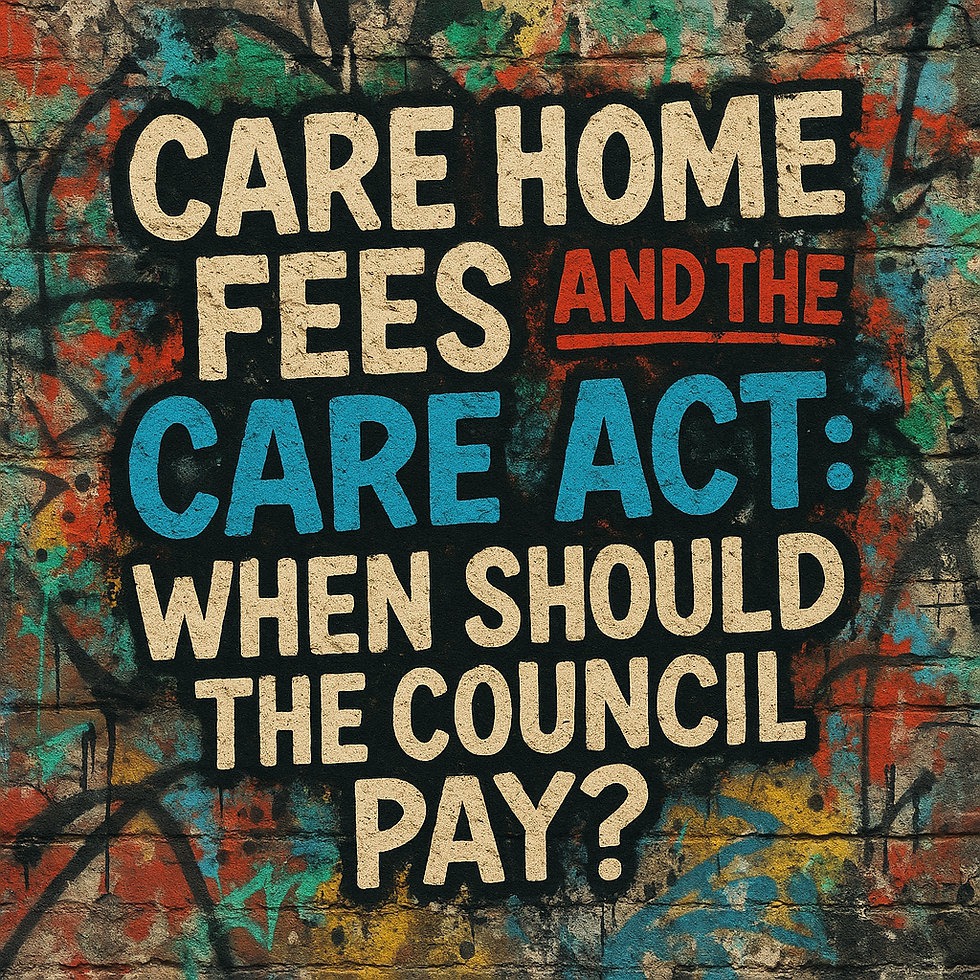Understanding the Principles of the Mental Capacity Act 2005 (MCA)
- Team Nellie

- Oct 12, 2023
- 3 min read
The Mental Capacity Act 2005 (MCA) is a crucial piece of legislation in the United Kingdom that aims to protect and empower individuals who lack the mental capacity to make their own decisions. Whether due to illness, disability, or a cognitive impairment, these individuals are vulnerable to decisions being made on their behalf without proper safeguards.
The MCA operates on five guiding principles that ensure these decisions are made carefully, respectfully, and in the best interest of the individual concerned. In this blog post, I, Holly, will walk you through these principles to help you understand their importance and application.
1. Presumption of Capacity
What it means: The first principle of the MCA is that everyone is presumed to have the capacity to make their own decisions unless proven otherwise. This is fundamentally a presumption of autonomy and dignity for each individual.
Application: Before any action is taken on behalf of someone else, it must be ascertained whether they genuinely lack the capacity to make that particular decision at that particular time. Capacity can be context-specific; an individual might be capable of deciding what to eat for breakfast but not capable of making complex financial decisions, for example.
2. Support to Make Decisions
What it means: The second principle insists that individuals should be provided with all the necessary support to enable them to make a decision themselves before anyone concludes that they lack capacity.
Application: Support can come in various forms, including the use of simpler language, visual aids, or more time to understand information. Failure to support someone adequately may lead to incorrect conclusions about their capacity, which violates the Act.
3. Unwise Decisions
What it means: The third principle is built on the notion that having the capacity to make decisions includes the right to make unwise or eccentric choices. Making a decision that others might regard as unwise does not necessarily mean a person lacks capacity.
Application: Caregivers and professionals must distinguish between poor decision-making and a genuine lack of capacity. Everyone has the right to make decisions that may seem ill-advised to others as long as they understand the implications.
4. Best Interest
What it means: If it is established that someone lacks capacity, any decisions made on their behalf must be in their "best interests." This term is not defined explicitly in the Act but is intended to consider the person's past and present wishes, feelings, and cultural or religious beliefs.
Application: The "best interests" checklist provided in the MCA gives a set of factors that must be considered, such as consulting with family members, friends, and professionals who know the individual well.
5. Least Restrictive Option
What it means: The final principle is that any intervention should be as least restrictive as possible regarding the individual's rights and freedom of action.
Application: When choosing between two equally effective options for care or treatment, always opt for the one that limits the person's freedom the least. For example, if supportive living at home and institutionalization are equally effective, living at home would be the less restrictive option.
The principles of the Mental Capacity Act 2005 serve as ethical and practical guidelines for making decisions for individuals who cannot do so themselves. Understanding and applying these principles is vital for anyone involved in the care, support, or treatment of those who may lack capacity. The Act aims to balance respect for individual autonomy with the need to protect vulnerable people, a challenge that these five principles help to navigate skillfully.
By adhering to these principles, we can ensure that every individual is treated with the dignity and respect they deserve while receiving the care and support they need.




Comments